I didn’t go looking for her secrets.
While cleaning under her bed, I found lost socks and snack wrappers. Then I spotted it a small, spiral-bound notebook with her name written on the front.
I wish I hadn’t opened it.
But I did.
And my hands was shaking after reading it.
She was just 12, but the words inside that diary told me she was carrying the weight of the world. Quietly. Alone. And somehow, I hadn’t noticed.
I Wasn’t Looking for Secrets
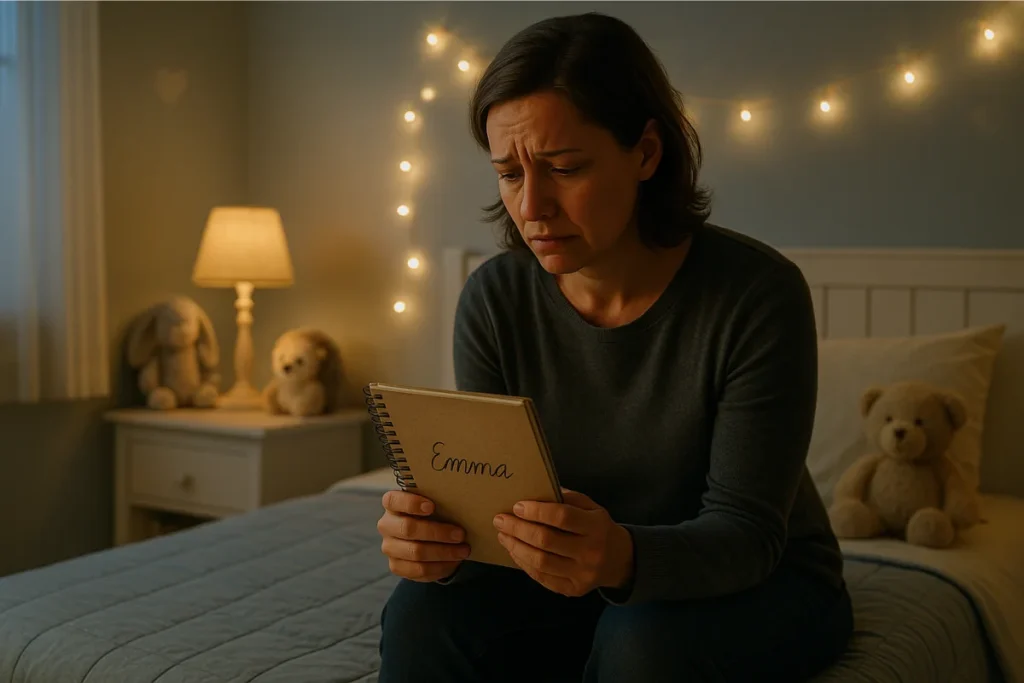
I wasn’t trying to invade her privacy. It was a regular Saturday afternoon. As I was changing the sheets in my daughter’s room, a small, old spiral notebook fell out from under her pillow.
Her name appeared onto the front in flowing characters. I hesitated. I knew it was her diary. I knew I shouldn’t read it.
But the way it hid made my stomach twist. It wasn’t on a shelf or in a drawer. It was tucked away like a secret.
Against my better judgment, I opened it.
I Don’t Think Anyone Would Notice If I Disappeared
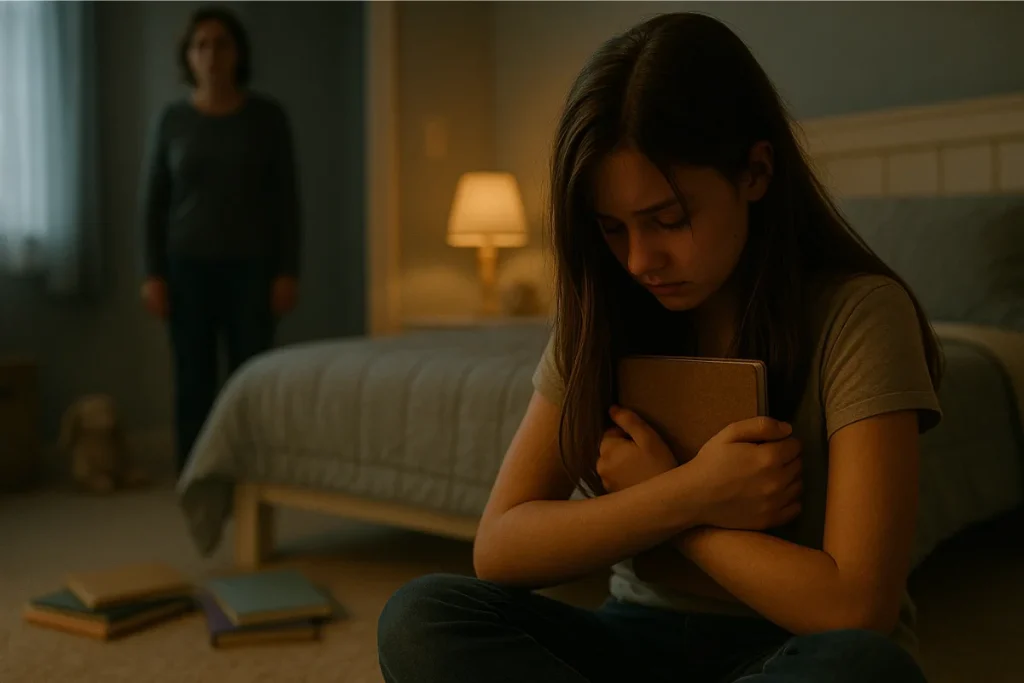
That was the first line on the page.
My vision blurred. My hands started to shake.
Twelve years old.
Twelve and already feeling invisible. Carrying burdens no child should face alone.
I flipped through the pages.
She wrote about feeling left out at school. She talked about girls who used to be her friends. They ignored her at lunch. About trying to “act normal” so no one would worry. About not wanting to be “too dramatic” or “too annoying.”
And worst of all, she wrote:
“I don’t want to make Mom sad. So I keep it all in.”
I Thought I Was Paying Attention
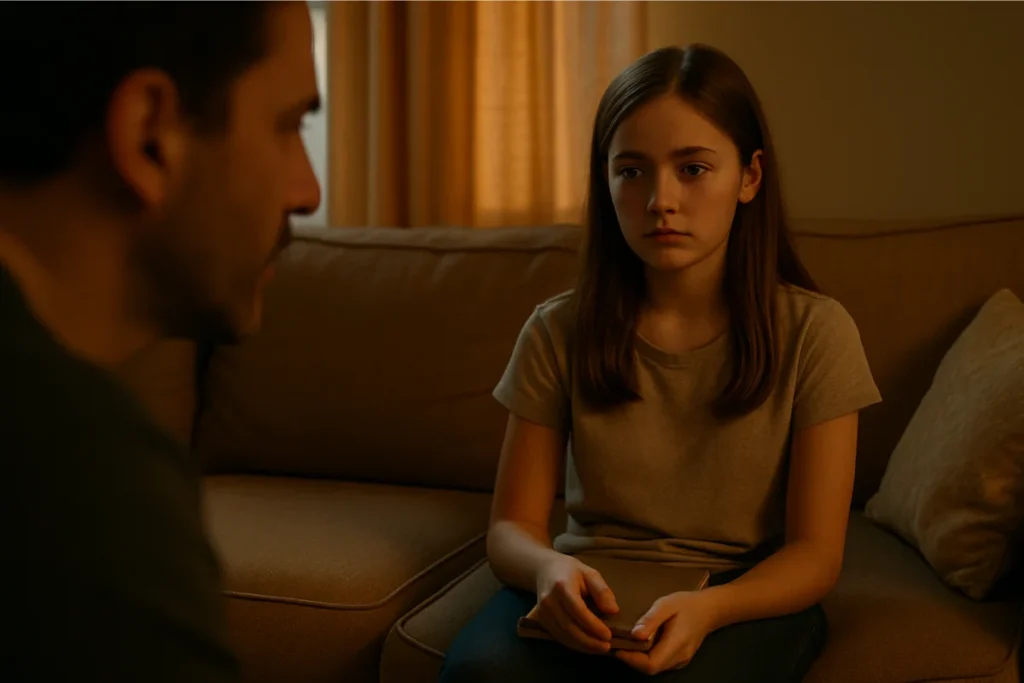
This wasn’t the same child I saw every day — or at least, I thought it wasn’t.
She smiled. She hugged me. She shared her favorite books. Then, she asked for more screen time, like any typical kid.
But now I realized:
She had been performing.
Not because she was hiding something bad. She didn’t want me to feel stressed.
She was shielding me from her pain.
The guilt hit me like a truck.
Kids Hide Their Hurt Well
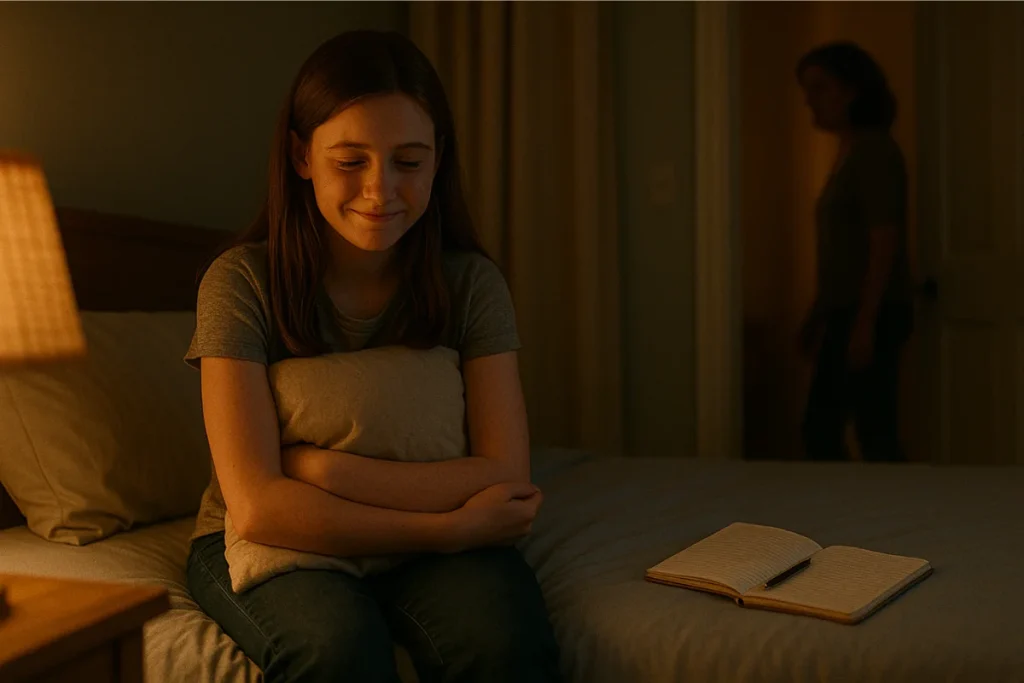
I thought I was a good mom. I asked about her day. I praised her schoolwork. Every night, I told her that I loved her.
But what didn’t I do enough of?
Ask the hard questions.
Sit with the quiet moments.
Make space for emotions that don’t look like smiles.
Sensitive kids often hide their pain. They do this, especially when they want to make others happy. They don’t want to be a burden. They hear us gripe about work, bills, and tiredness. So, they think their sadness will only make things harder for us.
And so, they write it in a diary instead of saying it out loud.
The Conversation That Changed Everything
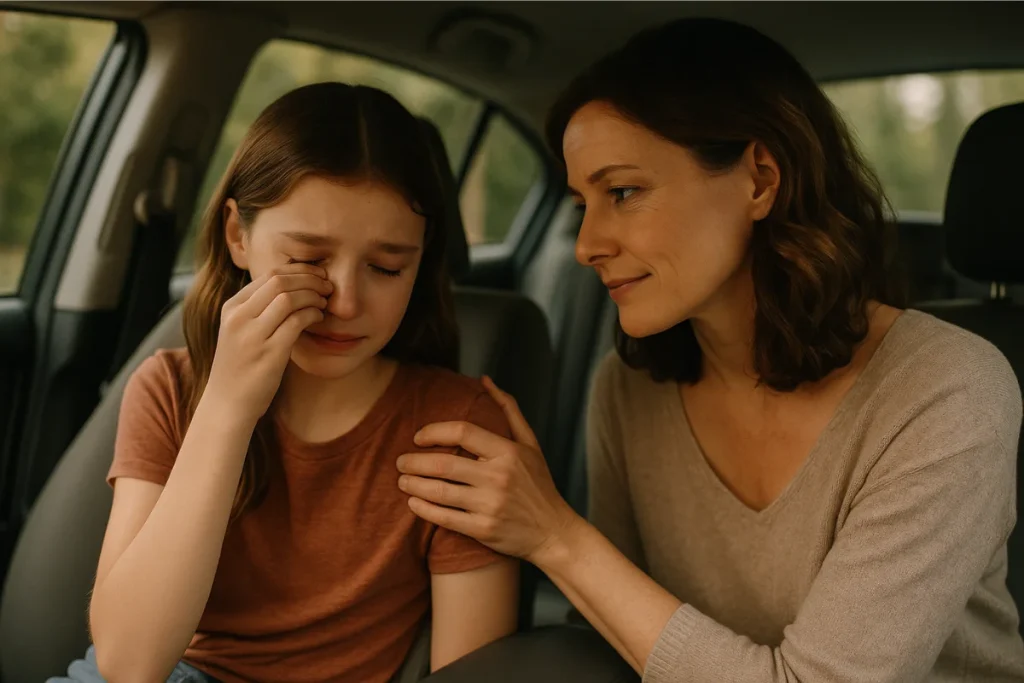
I didn’t confront her that night. I didn’t want her to feel betrayed. But the next day, while we were in the car, quiet, neutral space — I said:
“Hey, sometimes I wonder if you’re okay. You know, underneath everything. You don’t have to smile for me. I can handle anything you feel.”
She was silent. Then, she started to cry.
Not loud sobs — just quiet, relieved tears.
We pulled over and talked. And for the first time in weeks, maybe months, she opened up. She told me about the mean girls. About feeling like she didn’t fit in. About the pressure she put on herself to be “easy” to raise.
I told her I didn’t want to be perfect. I wanted real. I told her she could be messy, sad, loud, angry — anything. And I’d still be her safe place.
What I Learned As a Parent
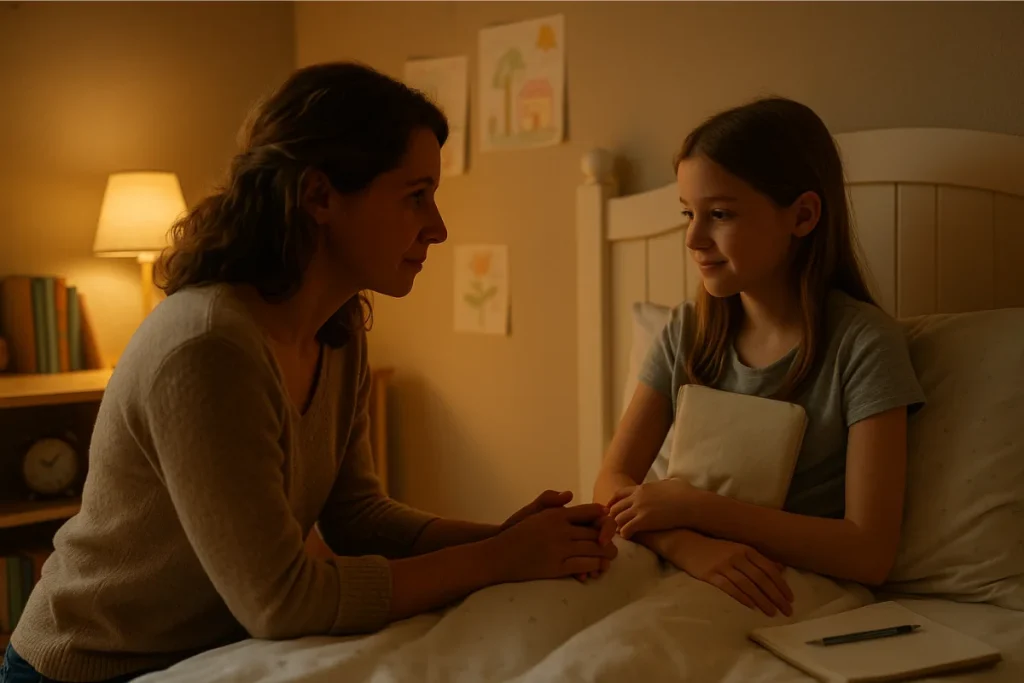
That diary broke me — but it also woke me up.
I learned that love isn’t enough if we don’t make room for vulnerability. Even the smartest kids can still feel alone. That children don’t always speak their pain out loud — they journal it, draw it, bury it.
Here’s what I’ve started doing since:
- I check in more deeply, not just “How was your day?” but “Did anything feel hard today?”
- I let her see me cry. Be human. Be honest — so she knows it’s okay to do the same.
- I remind her daily: she’s never a burden. Her feelings are not “too much.” She is safe, she is seen, she is heard.
What That Diary Taught Me
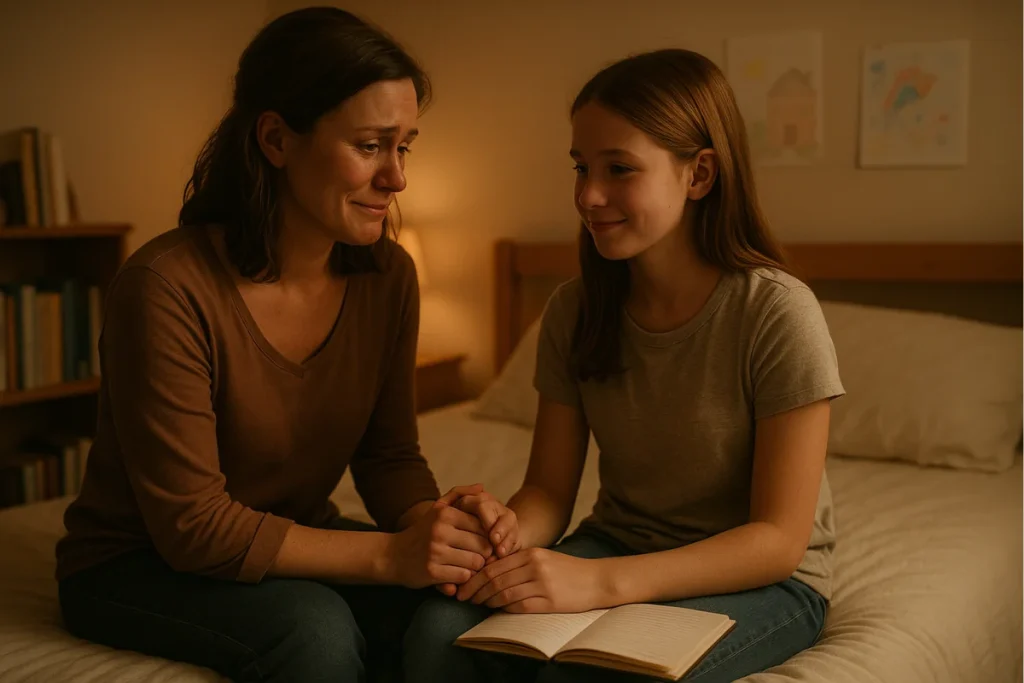
I found my 12-year-old’s diary by accident.
What I read inside broke me. She wasn’t wrong. It hurt to see she had been suffering in silence, and I never knew.
But that moment-that broken moment—gave me a second chance. A chance to love her better. To be more present. To see her, not just as my child, but as a whole person trying to find her place in the world.
If you’re a parent reading this, let me tell you: check in. Listen closely. Ask twice. And let them know they never have to smile to keep you happy.


